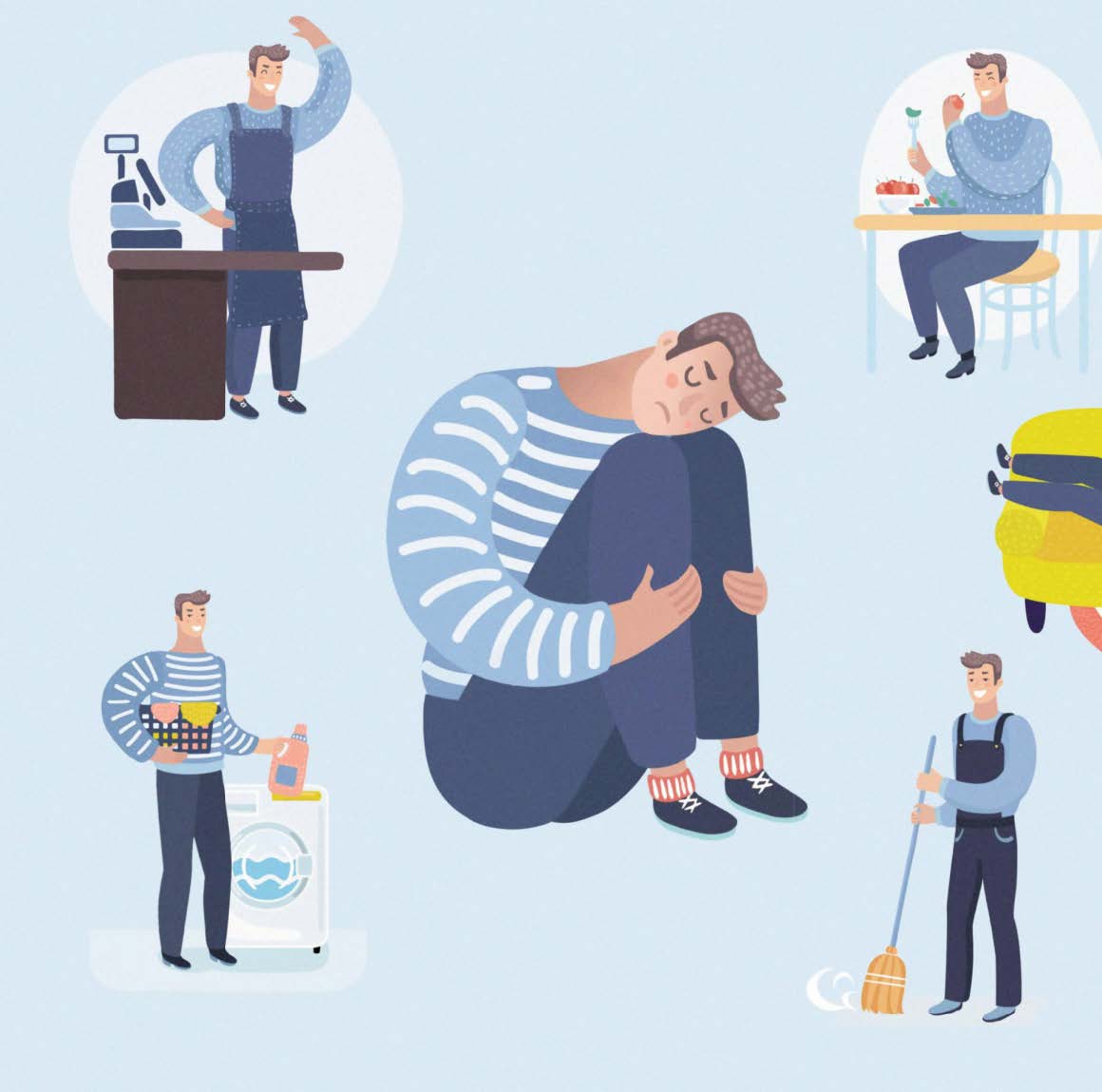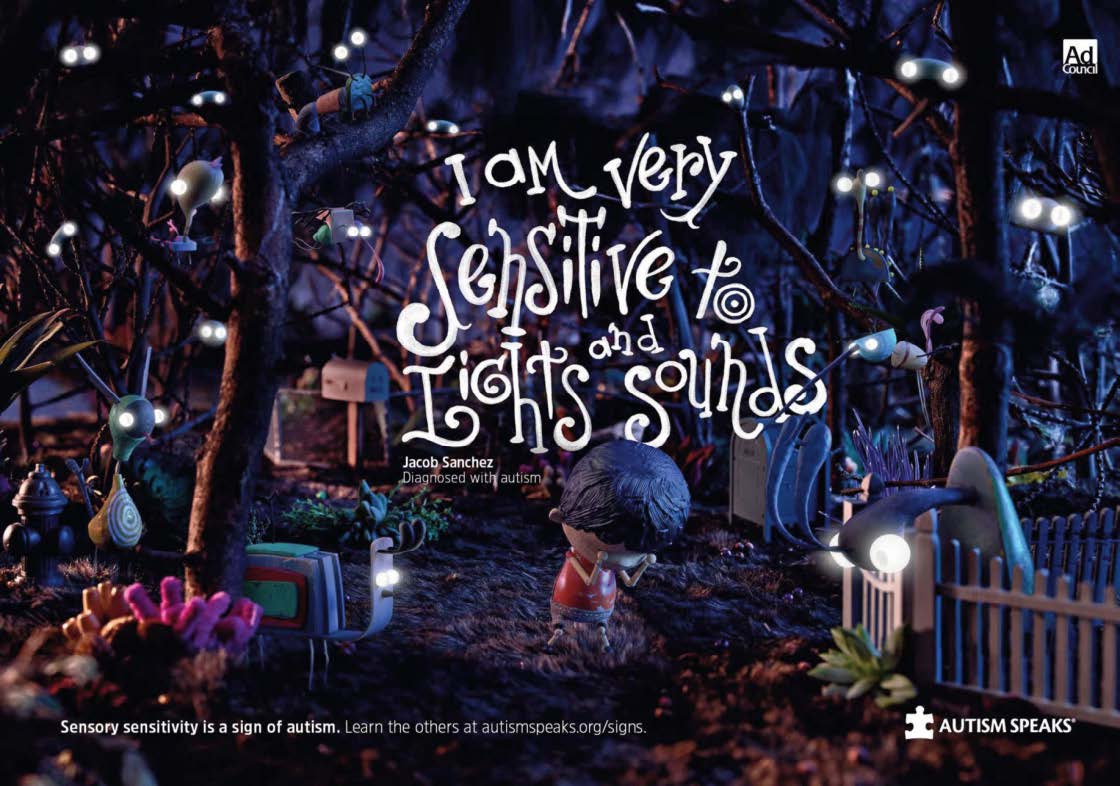
A PERSONAL ACCOUNT OF AGING OUT OF THE AUTISM SYSTEM

STAY FLEXIBLE: Consider alternative plans, because life is unpredictable and even the most carefully laid plans do not always work out as intended. Patience, optimism, and creativity are all needed when crafting a transition plan.
ADULTS WITH AUTISM NEED RESOURCES AND PROGRAMS THAT CAN HELP CONNECT THEM TO HOUSING, MEDICAL CARE, AND EMPLOYMENT OPPORTUNITIES.
THERE IS ALSO A NEED FOR BETTER EVIDENCE IN TERMS OF WHAT WORKS AND WHAT WORKS WELL.
EVERY INDIVIDUAL LIVING WITH AUTISM IS DIFFERENT AND WHAT WORKS FOR SOME MAY NOT WORK FOR OTHERS.
Although resources and research on autism in children have greatly expanded in recent decades, the needs of adults with autism are not as comprehensively covered. One of the most urgent issues facing the community is children with autism aging out of the secondary educational and pediatric care systems. Though there are several autismbased resources and programs for children, there are very few, if any, for young adults.
adults. To delve deeper into this issue, we sat down for an interview with Kiely Law, MD, MPH. Dr. Law is the director of the Interactive Autism Network (IAN), an autism research network based out of the Kennedy Krieger Institute, as well as the parent of a young adult living with autism. Her journey began in 1996, when doctors diagnosed Isaac, her then three-year-old son, with autism. Since then, she has taken on numerous roles in the community, which include researching autism and advocating for children and young adults with autism who are transitioning into the adult world. She has valuable first-hand personal and professional experience navigating the transition to adulthood.
HOW DID ISAAC'S FAMILY FORMULATE A TRANSITION PLAN AND GOALS?
Early on, Dr. Law knew that Isaac's goal was to one day move out and live on his own. The school system requires families of children with special needs to have postgraduation plans for their children by age 16, but Dr. Law believes it is important to start the conversation even earlier. Isaac began communicating his desire to live independently by age 12. By the time he was 20 and graduating high school, Isaac, his school, and his family completed a plan for his next steps. Isaac's plan included job coaching and learning how to use public transportation, but he did not enjoy working with his job coach and the plan quickly fell apart.
Unfortunately, there was no "Plan B," meaning Dr. Law and Isaac had to look for new resources and activities to help Isaac reach his goals. In hindsight, Dr. Law suggests other families create alternative plans because life is unpredictable and even the most carefully laid plans do not always work out as intended.
The process of putting together and executing a transition plan is complicated. When asked if she would have done any thing differently, Dr. Law said she would have made more of an effort to understand how the adult housing, medical, and job systems work. Even with this information, the process would have been a struggle because researching alone can feel like a full-time job. This process becomes even more complex the farther one lives from an urban center. Although Dr. Law is based in Baltimore, she said she struggled with finding adult resources and services for her son. Drawing from her experiences with IAN, Dr. Law knows this is a common problem. For some families, it is not possible for their children to move out and live independently due to the lack of services in their area. In these situations, Dr. Law has seen parents think creatively to come up with their own ways to help their child transition. One family, for example, bought a coffee shop that is now operated solely by adults living with autism. They created an opportunity that worked for their child while using it to open up new options for others with autism. Working together, families may pool resources and find unique strategies that work for them.
Though she said she would have done more research, Dr. Law notes that parents cannot be too hard on themselves, because the entire process is overwhelming. Being mentally prepared is just as important as being physically prepared. Patience, optimism, and creativity are all needed when crafting a transition plan. Dr. Law's research showed her that there was no "one-stop shop" for the resources she needed. She utilized some online resources and toolkits from Autism Speaks, but found the most helpful information through a local support group made up of parents of adults living with autism. There were other organizations that provided services to adults, but not all aligned with Isaac's specific wants and needs.
HOW DID THE PLAN WORK OUT IN THE END?
Altogether, it took years of planning, trial and error, and some luck to help Isaac transition to independent living. Finding supportive healthcare professionals was a challenge. It took years to find an internist, therapist, psychiatrist, and dentist who accepted adult patients living with autism and had a style that fitted with Isaac. Qualifying for residential support services was a long process of navigating different systems and applications that ultimately took three years. After that, it took an additional one and half years for the family to find an agency that worked for Isaac. Eventually, Dr. Law discovered Creative Options, an agency funded by the State of Maryland Department of Health and Mental Hygiene and contracted by the Developmental Disabilities Administration, Department of Human Resources, and Mental Hygiene Administration. The agency was able to find Isaac a safe apartment, a roommate, and provide him with an overnight staff person. Today, Isaac is happy. He felt the transition into independent living was very positive for him, compared to before when he felt stuck and frustrated in the process and in life. Ultimately, Dr. Law says, the transition even improved the relationship between Isaac and the rest of the family.
WHAT CAN YOU LEARN FROM ISAAC'S STORY?
Dr. Law says there is simply not enough funding out there for the number of children transitioning into adulthood. Adults with autism need resources and programs that can help connect them to housing, medical care, and employment opportunities. She also stated there is a need for better evidence in terms of what works and what works well. Every individual living with autism is different and what works for some may not work for others. By finding what works for their family and for those with similar needs, families can contribute their experience to the pool of evidence to help broaden the understanding of what resources are needed within various systems. Although, as Dr. Law mentioned, searching for information and resources online can feel like a full-time job, Isaac's journey shows that it is possible to come up with a solution for transitioning that works. Starting to plan early, talking with other families and individuals living with autism, thinking creatively, and coming up with flexible, alternative plans can save time, stress, and money when planning for their child's future. Armed with these skills and suggestions, families can facilitate a smooth and supported transition process for their young adult children with autism.•
ABOUT THE AUTHORS: Jordan Capizola is a Program Coordinator at Genetic Alliance, where she works on the Expecting Health team. In her role, she develops stakeholder engagement tools, drafts research materials, manages website content, and researches new findings in maternal and child health. Jordan graduated from the George Washington University with a B.A. in International Affairs with concentrations in International Politics and Global Public Health and a minor in Public Health. Adrianna Evans is a Program Coordinator working with Expecting Health and the PCORnet Coordinating Center at Genetic Alliance. She works on several engagement projects at Genetic Alliance; you can follow some of her work through live videos on the Baby's First Test Facebook page. Adrianna received her B.S. in Biology at Penn State in 2015 and recently earned her Master's in Public Health from George Washington University in 2017, specializing in Global Health Program Design, Monitoring and Evaluation.
